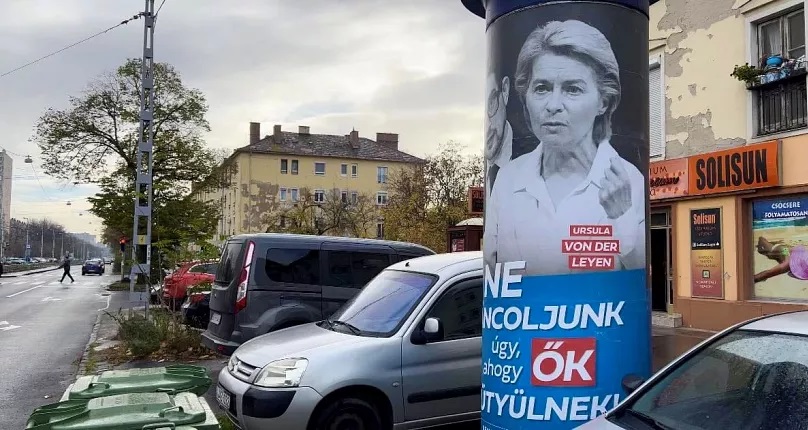The Hungarian government launched last Friday a national consultation on EU-related policies which reminded the European Commission about a similar campaign in 2019.
The new campaign is a kind of non-binding referendum and consist of 11 questions. Each question starts with a statement about an alleged EU policy, often formulated in a leading or inaccurate way. Citizens have two alternative responses to choose from – one is to support the government’s position, the other one is to disagree with it.
Normally a minority of citizens replies to these types of public consultations but a majority of those who do reply use to agree with the government. In most cases the government’s position is at odds with the EU position or the consensus among the EU member states.
Asked at today’s press conference (20 November) whether the Commission intended to react to the campaign, chief spokesperson Eric Mamer replied that the Commission did not intend to comment on the consultation even if the statements in it are untrue. He relied on the Hungarian citizens to inform themselves about EU’s policies and to the media to inform them about the policies.
“European Commission President von der Leyen did not raise an eyebrow when she was seen a picture of a billboard where she appears together with Alex Soros,” the spokesperson said. Alex Soros is the son of the Hungarian-American financier and philanthropist George Soros and the current chair of the Open Society Foundations.
The text on the billboards says, “Let’s not dance to their tune”.
When the Hungarian government launched an anti-migration campaign on billboards and newspaper advertisements ahead of the European Parliament elections in May 2019, the Commission decided to react and issued a point-by-point fact sheet against the Hungarian claims and “fake news”. Then the billboards showed former Commission President Jean-Claude Juncker and George Soros.
“The Hungarian government campaign distorts the truth and seeks to paint a dark picture of a secret plot to drive more migration to Europe,” the Commission said in 2019. Then the campaign had clear antisemitic undertones.
The spokesperson underlined that the Commission’s position on antisemitism is well-known. “We aren’t going to be drawn into a debate about a consultation on which we haven’t been consulted, which isn’t directed to us and which certainly isn’t in line with practices we use when we are asking the public specific questions.”
The 11 statements in the consultation
|
M. Apelblat
The Brussels Times

